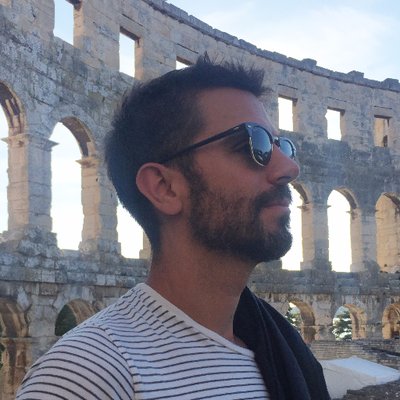Calibrating expectations for your core coming out of a first promising playoff run is one of the most challenging tasks a franchise must confront.
There is considerable risk in falling in love with the potential of your own players, convincing yourself to do nothing major, while a trade of a key component for a finishing piece endangers the status quo.
The Chicago Bulls won two games in the first round of the 2006 NBA Playoffs against the eventual champion Miami Heat. Luol Deng was becoming one of the league’s best emerging jack of all trades at just 20 years old, while Ben Gordon was a promising 22-year-old individual scorer. Tyson Chandler fit with the roster in regards to his age, 23, but he appeared to be slowing in his development after his fifth NBA regular season and an awful playoff series against the Heat.
The Bulls were positively in love with Deng at that point and their bold move to instantly improve their playoff chances was to sign a 32-year-old Ben Wallace away from a division rival. Wallace had won Defensive Player of the Year in four of the previous five seasons, but while a $60 million commitment over four seasons while trading away Chandler did send the Bulls to the Eastern Conference Semifinals in 2007, and to be in position to nearly trade for Kobe Bryant, it also compromised any chance of becoming a sustainable contender with that core.
The Bulls won just 33 games in 07-08 in a disastrous season in which they traded away Wallace and won the lottery to draft Derrick Rose.
The Golden State Warriors were in a similar position last offseason after taking the San Antonio Spurs to six games in the Western Conference Semifinals. But with David Lee’s 2016 expiring contract virtually untradeable and clogging up any potential cap space, Bob Myers had limited paths to improve the roster.
While the Warriors were also a longshot pursuer of Dwight Howard, a deal came together for the Warriors to clear enough cap space to sign Andre Iguodala by sending the contracts of Andris Biedrins, Richard Jefferson (brazenly acquired in order to own the pick that became Festus Ezeli) and Brandon Rush, along with first rounders in 2014 and 2017 to the Utah Jazz.
Iguodala became the Warriors’ version of Ben Wallace, an older player that would accelerate their timeline of contention while also shortening its potential shelf life. Iguodala has been outstanding this season, ranking third in the NBA in Real Plus-Minus, and vastly improving the Warriors’ perimeter defense. Iguodala is a huge net positive and his versatility allows the Warriors to simply play Stephen Curry on the weakest of the three opposing perimeter players. Iguodala has been remarkably healthy throughout his career and has the type of game that should age well similar to someone like Shawn Marion.
With the addition of Iguodala and nearly a full season from Andrew Bogut, the Warriors jumped from 14th in defensive efficiency to 4th while remaining flat on the offensive side of the ball. A team that gives more than 3,000 combined minutes to Lee and Curry that finishes in the top-5 clearly is talented and committed as a whole to that side of the court. The Warriors haven’t been this good on defense since their second season in San Francisco when they had Wilt Chamberlain and Nate Thurmond.
Title contenders typically are in the top-10 in both offense and defense while also possessing one or more true superstars. The legitimacy of the Warriors’ title expectations begins with Curry, as he has grown into that legitimate superstar over the past 18 months while also remaining remarkably healthy. Curry will receive a ton of MVP votes this season, including a third place nod from Zach Lowe. The NBA’s biggest truism is that a superstar is needed to win a championship and the Warriors have one right now in Curry.
But even if he’s generously considered the third most valuable player in the NBA right now, he’s still a clear step below LeBron James and Kevin Durant, two players that haven’t even been able to reach the Finals without everything being absolutely right around them.
Bogut and Lee are fine players individually, but the lack of athleticism with them on the floor together limits the capabilities on offense, especially with Curry working as a playmaker off the dribble. The Warriors don’t get a ton of high percentage shots at the rim in the halfcourt, making them overly reliant on outstanding perimeter shooting.
The long-term concerns with acquiring Iguodala are how it stunted the development of Harrison Barnes and their inability to improve the roster with the loss of draft picks and without cap space.
Barnes has been an unmitigated disappointment this season, lacking all confidence and production following a promising playoff performance when he looked like a deluxe small-ball power forward. Those issues that plagued him at North Carolina and caused his stock to drop returned in even a worse way.
Draymond Green has earned his way to being called the most valuable power forward on the Warriors’ roster this season with his excellent defense and versatility on offense. Coincidentally, Green was the 35th overall pick in the 2012 NBA Draft.
The Miami Heat, Oklahoma City Thunder, Houston Rockets, Los Angeles Clippers and Indiana Pacers may be similar to the Warriors in their ability to change their roster in any meaningful way, but they all have two players that can make the overall impact of Curry, while the Warriors just have him and a bunch of very good but not great pieces.
Curry will become an unrestricted free agent in 2017 during the same offseason as Iguodala and Bogut. Those three players will be 29, 33 and 32, respectively, while Klay Thompson and Green will be 27. Lee (34) will almost certainly leave during the previous offseason and it is hard to conceive of Barnes still being around based on what we’ve seen over the past year.
That core strikes me as one that will consistently win between 45 and 55 regular games and win a playoff series here and there to top out in the Western Conference Semifinals in a good season. Without a drastic shakeup or an improbable run similar to the Mavericks in 2011 with all of those perfectly placed veterans around Dirk Nowitzki, the Warriors would be a very unlikely champion.
There’s a quote from Doc Rivers in Paul Flannery’s excellent piece that can be applied just as easily to the Warriors as the Clippers.
"The one thing that I found interesting in Boston [was] when we were losing, we were losing with a championship mindset. We're winning here without one and we have to get that mindset. It's not just the players, it's everyone. When we started winning in Boston, we just fell back into what they were. They knew. They had been about winning. Here we don't because we haven't. That will be a task."
Joe Lacob deserves credit for shifting the expectations for the Warriors, but he appears to be doing so at the expense of appropriate internal expectations.
Lacob’s history with being unrealistic in evaluating his team began when he promised a playoff berth for the Warriors in the 11-12 season that was kicked off with the Charlie Bell amnesty mistake and ended with the club tanking for Harrison Barnes.
With the Warriors in the middle of a stacked Western Conference this season, Lacob has made comments to suggest Mark Jackson has underachieved this season as head coach. While I have reservations about some of Jackson’s coaching strategies, he has his whole roster buying into him (very difficult in today’s NBA) and I can only see the Warriors as being two or three wins better over this regular season with a more widely regarded head coach like Tom Thibodeau or Rick Carlisle.
The Warriors' playoff chances now appear to be dead on arrival with Bogut out with a fractured rib. How that changes the calculus on Jackson and what the team needs to address this offseason further complicates the situation.
But the strongest attribute of Lacob as an owner seems to be his insistence on remaining in the ‘deal flow’ and that constant tinkering by Mark Cuban and Donnie Nelson around Nowitzki is what eventually led to their 2011 title. Curry has a similarly unique and unguardable offensive game and that will be the Warriors' model for roster improvement for the remainder of his tenure.



